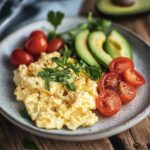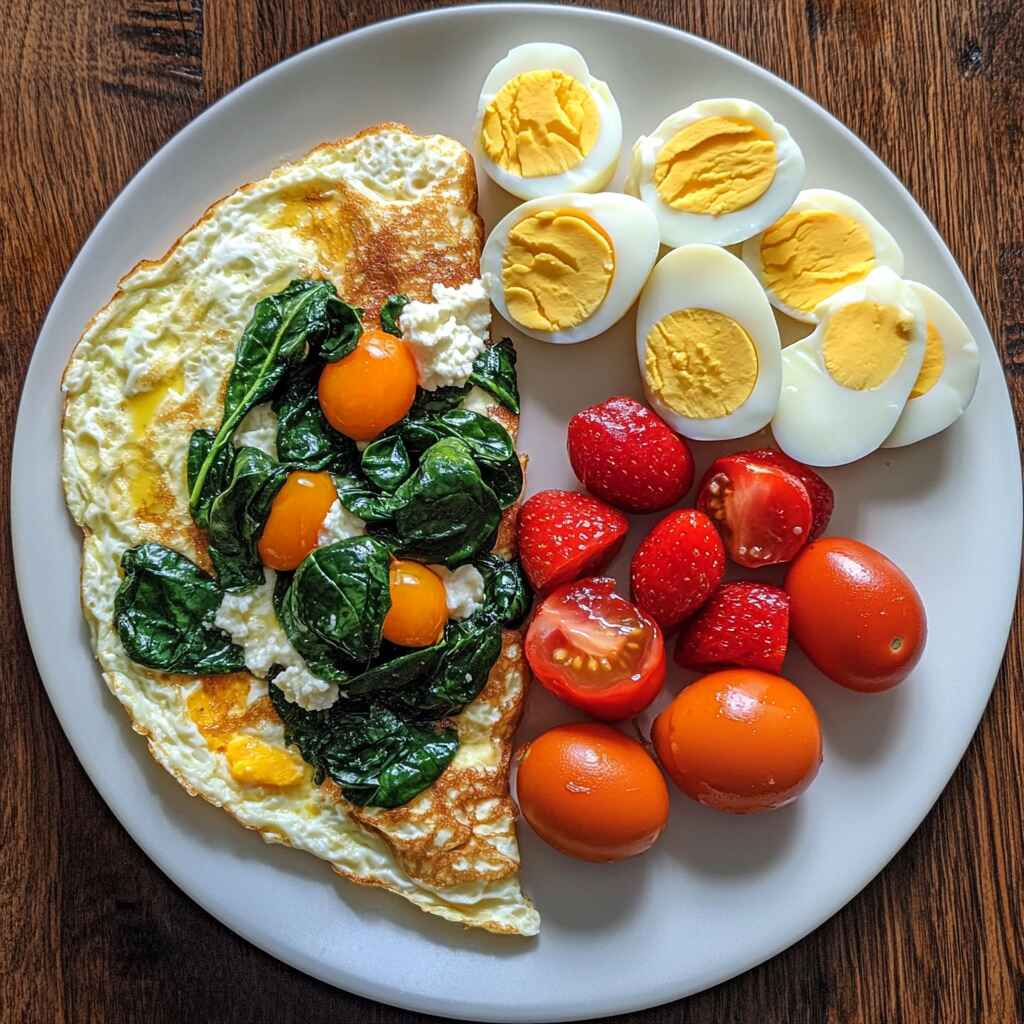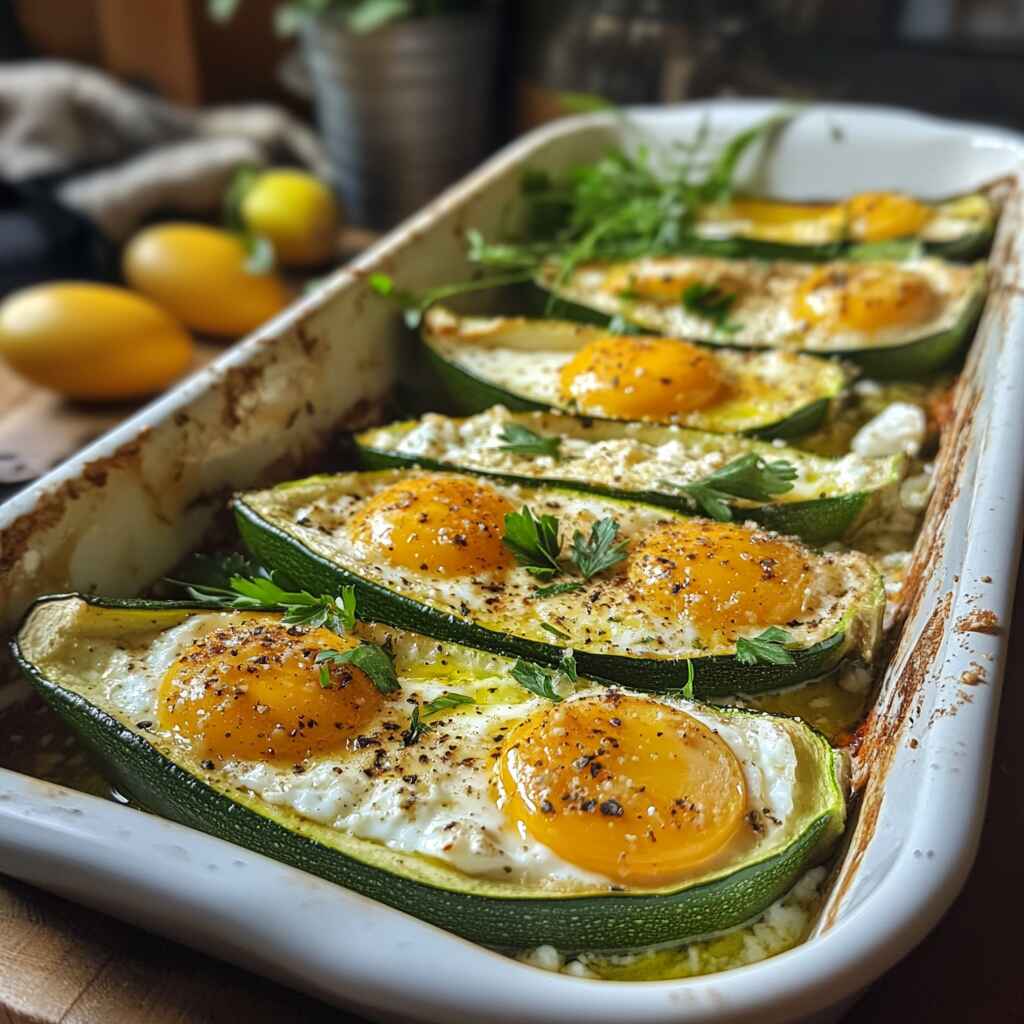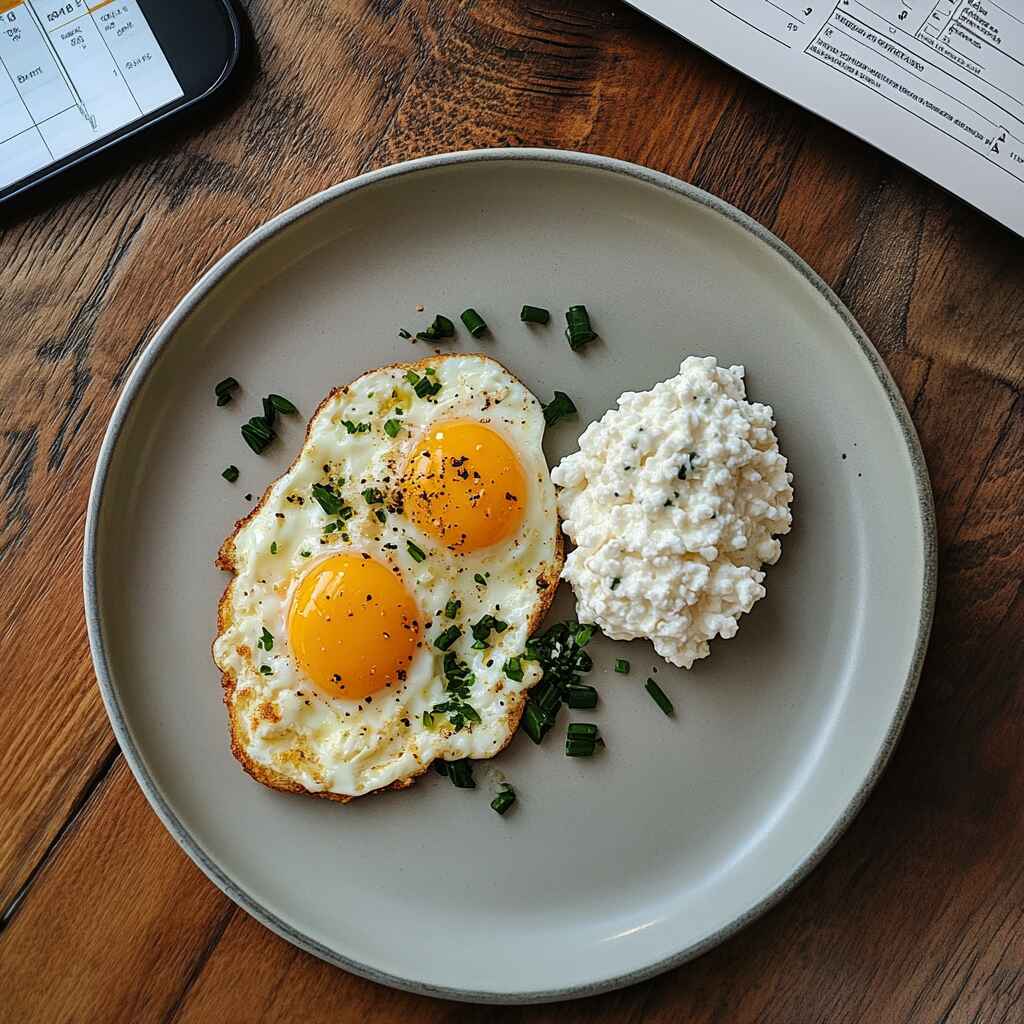Looking for an easy, protein-packed way to start your day or refuel post-workout? Eggs and cottage cheese are a powerhouse combo that’s gaining serious attention—and for good reason. They’re quick to prepare, incredibly nutritious, and fit right into a wide range of eating styles, from low-carb and keto to gluten-free and vegetarian. Whether you’re after muscle-building meals, family-friendly breakfasts, or simply something that keeps you full without fuss, this pairing delivers.
In this guide, you’ll learn everything you need to know about the nutritional benefits, health advantages, best recipes, and expert tips for making eggs and cottage cheese a staple in your diet.
Don’t miss our Cottage Cheese Bagels Guide for more delicious ways to use this underrated ingredient.
Nutritional Power of Eggs and Cottage Cheese
The Protein-Packed Duo: Why Eggs and Cottage Cheese Are a Powerhouse
Let’s break down why this combo is loved by dietitians, fitness buffs, and foodies alike.
Eggs are considered a “complete protein”—meaning they contain all nine essential amino acids your body needs. Just one large egg offers around 6–7 grams of protein. They’re also rich in healthy fats, choline (for brain health), and important antioxidants like lutein and zeaxanthin.
Cottage cheese, on the other hand, is also loaded with high-quality casein protein. Just ½ cup can contain up to 14 grams of protein, depending on the brand and fat content. It’s also low in calories and carbs, making it an ideal choice for anyone watching their weight or managing blood sugar.
Together, these two foods create a nutrient-dense, satiating combo that fuels your body and supports muscle recovery, all while keeping your calorie count in check.
| Food Item | Protein (g) | Calories | Carbs (g) | Fat (g) |
|---|---|---|---|---|
| 2 Large Eggs | 12 | 140 | 1.2 | 10 |
| ½ Cup Cottage Cheese | 14 | 100–110 | 3–4 | 2–5 |
| Total | 26 | 240–250 | 4–5 | 12–15 |
That’s nearly 26 grams of protein in under 300 calories. Impressive, right?
Key Vitamins and Minerals in Eggs and Cottage Cheese
It’s not just about protein. This dynamic duo delivers a wealth of essential nutrients:
- Eggs provide Vitamin B12, B6, Vitamin D, selenium, iron, and zinc. Choline, found in egg yolks, plays a crucial role in brain development and liver function.
- Cottage cheese is a solid source of calcium, phosphorus, and selenium. It’s also rich in B vitamins like riboflavin (B2) and cobalamin (B12).
The nutrient synergy here is powerful—you’re not just eating for calories, but for better energy, cognition, and long-term health.
If you’re following a keto or low-carb lifestyle, check out our Keto & Low-Carb Meals section to discover more high-protein, low-carb combinations like this one.
Print
Scrambled Eggs with Cottage Cheese
- Total Time: 10 minutes
- Yield: 2 servings
- Diet: Gluten Free
Description
This fluffy, protein-rich scrambled eggs with cottage cheese recipe is a quick and healthy way to fuel your morning. With a creamy texture and a mild, savory flavor, it’s perfect for low-carb, high-protein, or diabetic-friendly diets. Ideal for breakfast or even a light lunch, this dish is ready in just 10 minutes and requires minimal ingredients.
Ingredients
4 large eggs
½ cup cottage cheese (low-fat or full-fat)
1 tablespoon olive oil or butter
¼ teaspoon sea salt
⅛ teaspoon black pepper
1 tablespoon chopped fresh chives or parsley (optional)
Pinch of garlic powder (optional)
Instructions
Crack the eggs into a medium mixing bowl. Whisk them thoroughly with the salt, pepper, and optional garlic powder.
Stir in the cottage cheese gently until evenly combined. Do not overmix, or the texture may break down.
Heat a non-stick skillet over medium-low heat. Add olive oil or butter and allow it to warm.
Pour in the egg mixture and let it sit undisturbed for 20–30 seconds until the edges begin to set.
Gently stir with a silicone spatula, pushing the eggs from the edges toward the center. Continue cooking slowly for 2–3 minutes, stirring occasionally, until the eggs are softly scrambled.
Remove from heat just before they’re fully set, as residual heat will finish cooking.
Garnish with chopped herbs and serve immediately.
Notes
For extra creaminess, use whipped cottage cheese.
If you prefer drier eggs, cook an additional 30 seconds.
This recipe pairs beautifully with avocado, sliced tomatoes, or a piece of sprouted grain toast.
Add baby spinach or kale for a veggie boost.
If you’re dairy-sensitive, opt for lactose-free cottage cheese.
- Prep Time: 5 minutes
- Cook Time: 5 minutes
- Category: Breakfast
- Method: Stovetop
- Cuisine: American
Health Benefits of Combining Eggs and Cottage Cheese
Weight Loss Support, Muscle Growth, and Satiety
Combining eggs and cottage cheese isn’t just a win for flavor—it’s a smart move for your health goals. Whether you’re trying to lose weight, build lean muscle, or simply avoid those midday crashes, this duo supports it all.
Here’s how:
- High Protein = Full Longer
Protein-rich meals are known to reduce hunger hormones like ghrelin and increase satiety hormones like peptide YY. That means fewer cravings and less snacking later. - Muscle Maintenance & Recovery
The protein blend—fast-digesting egg white proteins and slow-releasing casein from cottage cheese—delivers a steady amino acid stream. This helps muscle recovery post-exercise and reduces muscle breakdown. - Low-Calorie, High-Satiety
At around 240–250 calories for a full serving, this combo satisfies hunger without pushing your calorie count overboard—making it perfect for fat loss diets and intermittent fasting routines.
Gut Health, Heart Health, and Metabolic Function
You might be surprised by the well-rounded wellness boost this simple pair offers:
- Choline for Brain & Liver Function
Eggs are one of the best dietary sources of choline, a vital nutrient that supports brain development, memory, and liver detox functions. - Calcium and Phosphorus for Bone Strength
Cottage cheese delivers these bone-supporting minerals, which are crucial for women, kids, and older adults. - Good Fats for Heart Health
Whole eggs, in moderation, can help improve HDL (good) cholesterol. Combined with low-fat cottage cheese, it’s a smart heart-health choice. - Metabolism Boosting Nutrients
B-complex vitamins in both eggs and cottage cheese support energy metabolism and help your body convert food into usable fuel efficiently.
When used regularly, this nutrient-rich combo can assist with blood sugar stability, keeping energy levels even throughout the day.
Popular Breakfast Recipes with Eggs and Cottage Cheese

Scrambled Eggs with Cottage Cheese: A Creamy Twist
One of the easiest ways to combine eggs and cottage cheese is right in your scrambled eggs. This technique adds a creamy texture and boosts the protein count without adding extra effort.
How to Make It:
- Crack 2 large eggs into a bowl.
- Add 2–3 tablespoons of full-fat or low-fat cottage cheese.
- Season with salt, pepper, and a pinch of turmeric for color.
- Whisk well and cook in a non-stick pan over medium heat.
The cottage cheese melts slightly, giving the eggs a soft, almost cheesy finish—without needing actual cheese. For extra flavor, toss in chives or chopped spinach.
Pro Tip: Use whipped cottage cheese for a smoother blend.
Cottage Cheese Omelet and Breakfast Bowl Ideas
Want more variety? These recipes combine ease, flavor, and nutrition:
Cottage Cheese Omelet
- Beat 2 eggs with herbs.
- Pour into a skillet, and once set, add ¼ cup cottage cheese and sautéed veggies inside.
- Fold, cook another minute, and serve with avocado on the side.
Egg & Cottage Cheese Breakfast Bowl
- Start with a base of spinach or arugula.
- Add 2 boiled eggs, ½ cup cottage cheese, cherry tomatoes, and a drizzle of olive oil.
- Sprinkle paprika or everything bagel seasoning.
It’s a quick, no-cook option that’s meal-prep friendly. Keep chopped toppings in separate containers for an easy grab-and-go solution.
Protein Pancakes with Eggs and Cottage Cheese
Mix 2 eggs, ½ cup cottage cheese, 2 tablespoons oats, and a pinch of baking powder. Blend and cook like pancakes for a sweet twist that fuels your morning.
Creative Meal Ideas Beyond Breakfast
Lunch and Dinner Recipes Using Eggs and Cottage Cheese
While eggs and cottage cheese shine at breakfast, their versatility doesn’t stop there. You can easily turn them into satisfying lunch or dinner dishes that are both nutrient-packed and quick to prepare.
Cottage Cheese-Stuffed Egg Wrap
This quick low-carb wrap is a favorite among high-protein eaters.
- Whisk 2 eggs to make a thin crepe-style egg wrap.
- Spread ¼ cup of cottage cheese mixed with chopped veggies and herbs inside.
- Roll and slice—it’s a delicious and easy way to enjoy eggs and cottage cheese without needing bread.
High-Protein Egg and Cottage Cheese Bake
Looking for a family-friendly dish that works for dinner?
- Combine 3 beaten eggs with 1 cup of cottage cheese, sautéed onions, and chopped spinach.
- Pour into a baking dish and bake at 375°F for 25 minutes.
- This simple bake is one of the easiest ways to enjoy eggs and cottage cheese in a hearty form.
Zucchini Boats with Cottage Cheese and Egg

This gluten-free idea brings veggies and protein together on one plate.
- Hollow out zucchini halves and roast until tender.
- Fill with cottage cheese and top each with a cracked egg.
- Bake until the eggs are fully set.
This meal blends the clean taste of vegetables with the creamy, savory flavor of eggs and cottage cheese—great for weeknights.
Snacks and Dips with Cottage Cheese and Boiled Eggs
Don’t overlook snack time—eggs and cottage cheese are perfect for high-protein bites that keep you full without added sugar or empty calories.
Cottage Cheese & Egg Dip
- Mash a hard-boiled egg into ¼ cup cottage cheese with garlic powder and lemon juice.
- Dip veggies or whole grain crackers into this protein-packed spread.
It’s a fast, no-cook way to enjoy the health benefits of eggs and cottage cheese in between meals.
Stuffed Mini Bell Peppers
- Slice mini peppers in half, then fill with cottage cheese.
- Top each with chopped hard-boiled eggs and a sprinkle of paprika.
These bite-sized snacks are a colorful way to serve eggs and cottage cheese at parties—or enjoy them solo as a healthy treat.
Best Pairings to Enhance the Flavor
What Pairs Well with Cottage Cheese in a Dish?
While eggs and cottage cheese are flavorful on their own, adding the right companions can elevate them to something really special. The mild, creamy nature of cottage cheese balances beautifully with both savory and sweet ingredients, making it easy to customize based on your taste or diet.
Fruits and Natural Sweeteners
If you’re making a sweet breakfast or snack with eggs and cottage cheese, try these additions:
- Sliced peaches, blueberries, or pineapple
- A drizzle of honey or maple syrup
- Dash of cinnamon or vanilla extract
Example: Mix ½ cup cottage cheese with two chopped boiled eggs, berries, and honey. It’s sweet, protein-rich, and refreshing.
Vegetables and Fresh Greens
For savory options, eggs and cottage cheese pair wonderfully with fresh or roasted vegetables:
- Spinach, tomatoes, red bell peppers
- Grated zucchini or shredded carrots
- Kale or arugula
These add texture, fiber, and color, all while complementing the soft and creamy elements of your dish.
Whole Grains and Legumes
Want to make your meal more filling? Pairing with these staples works great:
- Quinoa or brown rice bowls topped with eggs and cottage cheese
- Chickpeas, black beans, or lentils mixed in a salad
- Whole grain toast or sprouted grain wraps
Flavor Boosters: Herbs, Spices, Veggies, and Healthy Carbs
Let’s spice things up. Since eggs and cottage cheese have a neutral base, you can get creative with seasonings and sides.
Go-To Herbs and Spices
- Dill, chives, or parsley for freshness
- Paprika, cumin, or turmeric for warmth and color
- Cracked black pepper and sea salt for balance
Add chopped herbs directly into cottage cheese or scrambled eggs before cooking for a flavor infusion.
Healthy Carb Add-Ons
If you want more energy or you’re not on a low-carb plan, consider:
- Roasted sweet potatoes
- Ezekiel toast or English muffins
- Oatmeal on the side (especially for morning meals)
Combining these ingredients with eggs and cottage cheese not only builds flavor but balances your macronutrient intake—helping you stay full and fueled.
Protein Comparison and Macronutrient Analysis
How Much Protein Is in Eggs and Cottage Cheese Combo?

If you’re tracking your macros or aiming to hit a daily protein target, you’ll love how effective eggs and cottage cheese are. They’re both standout sources of high-quality protein—meaning they contain all essential amino acids your body needs for muscle growth, cell repair, and hormone production.
Here’s a simple look at their typical protein content:
- 2 Large Eggs = 12–14 grams of protein
- ½ Cup Cottage Cheese (low-fat or full-fat) = 12–15 grams of protein
That gives you a total of 24 to 29 grams of protein in one easy-to-make meal. And the best part? You get this much protein for under 300 calories, making it ideal for:
- Pre- or post-workout meals
- Low-calorie diets
- High-satiety breakfasts or lunches
The combination of eggs and cottage cheese also offers both fast-digesting (egg whites) and slow-digesting (casein from cottage cheese) protein—providing sustained energy and muscle recovery support over several hours.
Table: Macronutrients in 2 Scrambled Eggs + ½ Cup Cottage Cheese
Here’s a breakdown to show what you’re really getting in terms of nutrition:
| Nutrient | 2 Large Eggs | ½ Cup Cottage Cheese | Total Combined |
|---|---|---|---|
| Protein (g) | 12–14 | 12–15 | 24–29g |
| Calories | 140 | 100–120 | 240–260 kcal |
| Carbohydrates (g) | 1.2 | 3–5 | 4–6g |
| Fat (g) | 10 | 2–6 (varies by fat level) | 12–16g |
| Cholesterol (mg) | 370 | 15 | 385mg |
| Calcium (mg) | 56 | 100 | 156mg |
As you can see, this simple combo delivers nearly 30 grams of complete protein, moderate healthy fats, and very low carbs—ideal for keto, weight loss, and muscle-building diets.
It also provides a solid dose of calcium, Vitamin D, selenium, and choline, which are essential for bone, brain, and metabolic health.
How to Make Eggs and Cottage Cheese for Different Diets
Low-Carb and Keto-Friendly Recipes
Eggs and cottage cheese are naturally low in carbohydrates, making them a go-to choice for those following low-carb and keto diets. But let’s take it further with recipes that keep your carb count minimal while boosting taste and nutrition.
Keto Egg & Cottage Cheese Muffins
- Mix 4 eggs, 1 cup cottage cheese, chopped spinach, and shredded cheddar.
- Pour into muffin cups and bake at 350°F for 20 minutes.
- Store for 3–4 days and reheat for a quick keto breakfast or snack.
Each muffin has under 2g of net carbs, with plenty of protein and fats to keep you full.
Cottage Cheese Egg Bowl (Keto Version)
- Layer ½ cup cottage cheese, 2 boiled eggs, avocado slices, and arugula.
- Drizzle olive oil, lemon juice, and sprinkle with chia seeds or hemp hearts.
This bowl is high-fat, low-carb, and fiber-rich—a balanced keto plate in under 10 minutes.
Vegetarian, Gluten-Free, and Dairy-Conscious Swaps
Good news—eggs and cottage cheese already check off the vegetarian and gluten-free boxes, but if you’re dealing with sensitivities or preferences, there are smart swaps that keep the benefits without compromise.
Vegetarian
Since both ingredients are animal-based but not meat, they’re excellent for lacto-ovo vegetarians. Pair them with plant-forward sides like:
- Roasted veggies
- Quinoa or lentils
- Sautéed mushrooms and kale
Add herbs like dill and oregano to enhance flavor naturally.
Gluten-Free
You don’t need to change a thing—eggs and cottage cheese are naturally gluten-free. Just be cautious with any processed cottage cheese or flavored varieties that might contain additives. Always check labels.
Lactose-Free or Dairy-Sensitive
If you’re sensitive to dairy, here are two tips:
- Use lactose-free cottage cheese (several brands make it).
- Try whipped cottage cheese, which may be easier on digestion.
You’ll still get the protein, calcium, and creamy texture—just without the bloat or discomfort.
Cooking Tips and Storage Advice
How to Store Cooked Eggs and Opened Cottage Cheese
Proper storage is essential to make the most of your eggs and cottage cheese. While both are fridge staples, each has specific guidelines to stay fresh, safe, and nutritious.
Cooked Eggs
- Store hard-boiled eggs (with shells) in the fridge for up to 1 week.
- If peeled, place them in an airtight container with a damp paper towel to prevent drying.
- Scrambled or baked eggs should be used within 3–4 days and kept in sealed containers.
Pro Tip: Label containers with dates so you never second-guess freshness.
Opened Cottage Cheese
- Keep the container tightly sealed and store in the coldest part of your fridge—not the door.
- Use within 5–7 days after opening for best taste and texture.
- If cottage cheese develops a sour smell, watery separation, or discoloration, it’s time to toss it.
To reduce waste, buy small containers unless you use eggs and cottage cheese frequently throughout the week.
Can You Freeze Cottage Cheese? Shelf-Life Explained
Freezing is a common question—and the answer is yes, but with a caveat.
Freezing Cottage Cheese
- You can freeze cottage cheese, but the texture changes (it becomes crumbly and less creamy).
- Best used in baked dishes, muffins, or egg casseroles after thawing.
- Freeze in small portions in airtight bags for up to 3 months.
When thawing, leave it in the fridge overnight. Stir well before using, and avoid eating it plain unless you don’t mind the altered texture.
Eggs and Freezing
- Raw eggs (out of the shell) can be frozen—beat first, then freeze in ice cube trays.
- Cooked egg dishes that include cottage cheese (like casseroles) freeze well for 1–2 months.
- Label all frozen items with dates and contents.
Expert Tips for Making Eggs and Cottage Cheese a Daily Staple
Morning Routine: Meal Prep Hacks for Busy People
You don’t need to be a gourmet chef—or even a morning person—to enjoy the benefits of eggs and cottage cheese daily. With the right prep strategies, this combo can fit easily into even the busiest schedules.
Make-Ahead Breakfast Jars
- In small mason jars, layer ½ cup cottage cheese, diced boiled eggs, veggies or fruit, and your favorite seasoning.
- Store in the fridge for up to 3 days.
- Grab and go—perfect for the commute or a post-gym snack.
Batch Cook Egg Muffins
- Bake a tray of cottage cheese egg muffins (see Part 7).
- Store in the fridge or freezer for effortless breakfasts all week.
- Reheat in the microwave or toaster oven in under 1 minute.
Pro Tip: Keep hard-boiled eggs on hand and single-serve cottage cheese containers in your fridge for last-minute meals.
Tips to Make Kids and Picky Eaters Love This Combo
Let’s be real: not everyone loves cottage cheese right away. But there are ways to sneak in the goodness of eggs and cottage cheese—even for kids and fussy eaters.
Blend It Smooth
- Use a blender to whip cottage cheese into a creamy spread.
- Add to scrambled eggs or dips for a milder texture and taste.
Flavor First
- Mix cottage cheese with a spoonful of fruit preserves or natural peanut butter for a sweeter spin.
- Add chopped eggs and cottage cheese to mac ‘n cheese, quesadillas, or savory muffins.
Make it Visual
Kids love colors and shapes—use cookie cutters on omelets or turn egg wraps into mini roll-ups with whipped cottage cheese and turkey slices.
Frequently Asked Questions
Are cottage cheese and eggs good?
Absolutely. Eggs and cottage cheese are both nutrient-dense, high-protein foods. Together, they offer a complete profile of essential amino acids, vitamins like B12 and D, and minerals such as calcium and selenium. Whether you’re aiming to build muscle, lose weight, or simply stay full longer, this duo is a smart, healthy choice.
How do you make cottage cheese and eggs for breakfast?
There are several easy and delicious ways to make eggs and cottage cheese for breakfast. One of the most popular is mixing cottage cheese into scrambled eggs for a creamy texture and extra protein. You can also use them in omelets, baked egg muffins, breakfast bowls, or even protein pancakes. For a no-cook option, pair hard-boiled eggs with a side of cottage cheese and fresh fruit or avocado.
How much protein is in 2 scrambled eggs and cottage cheese?
Two large scrambled eggs typically contain around 12–14 grams of protein. Add ½ cup of low-fat cottage cheese, and you’ll get another 12–15 grams. That brings the total to about 24–29 grams of protein—an excellent amount for a single meal under 300 calories.
What pairs well with cottage cheese?
Cottage cheese is extremely versatile. It pairs well with:
Sweet items like berries, peaches, and honey
Savory foods like eggs, avocado, tomatoes, and fresh herbs
Whole grains, such as quinoa, oats, or sprouted toast
Seasonings like paprika, garlic powder, or everything bagel mix
Make Eggs and Cottage Cheese a Staple in Your Healthy Lifestyle
If you’re looking for a meal base that’s simple, affordable, and packed with nutrition, look no further than eggs and cottage cheese. This duo checks all the boxes: high in protein, low in carbs, easy to prepare, and incredibly versatile across breakfast, lunch, dinner, and snacks.
From meal-prepped egg muffins to creamy scrambles and colorful bowls, the possibilities are endless. Plus, this combo works beautifully with most dietary lifestyles, including keto, gluten-free, and vegetarian plans.
And for more creative and delicious recipe inspiration every day, follow on Facebook — your go-to feed for fresh kitchen ideas and comfort food with a twist.

